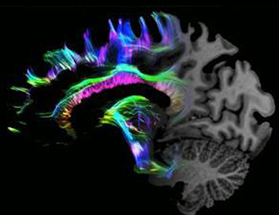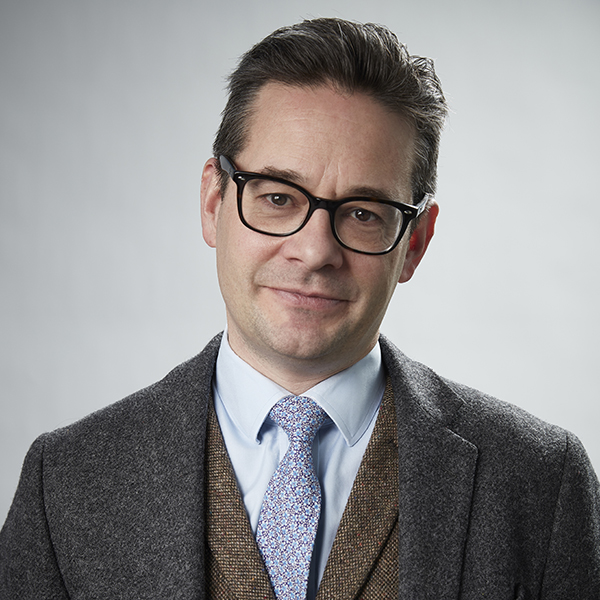
Scientists in Cambridge are set to receive over £5.8 million from Cancer Research UK to find new ways to treat brain tumours in children.
Professor Richard Gilbertson is leading an international team based at the Cancer Research UK Cambridge Centre, University of Cambridge, which has been awarded the funding to carry out pioneering research to gain a better understanding of the biology of children’s brain tumours. This could lead to much needed treatments.
Brain tumours are one of the hardest types of cancer to treat because not enough is known about what starts and drives the disease, and there are challenges with translating discoveries in the lab to treatments for patients.
Currently, the main treatment for children with brain tumours is surgery, or radiotherapy or chemotherapy if surgical removal of the tumour isn’t possible. This means survival has barely improved over the last 40 years.
Each year in England around 420 children are diagnosed with brain tumours, and around 75 children die every year in England from brain tumours.
The £5.86 million Cancer Research UK Brain Tumour Award will enable Professor Gilbertson to lead the international team of researchers, based in London, the United States and Canada, who will study each individual cell in the healthy, developing brain, ‘mapping’ their biological properties.
By comparing these healthy developmental maps to the most common types of children’s brain tumours, the researchers believe they will get fresh insights into how brain tumours develop and grow. This could lead to the development of new drugs specifically designed to treat brain tumours in children.
The researchers will design the study in a particular way in mice, so that the findings will be more easily translatable in children with brain cancer, which could lead to breakthroughs in treatments.
Professor Gilbertson said: “Cancer almost never invents new biology, it just corrupts normal cell processes and deploys these in the wrong place at the wrong time. We’re going to build the first functional map of the developing brain that will allow us to view all cells and in three dimensions, because if you understand what is normal, you have a better chance understanding what goes wrong in tumours. We will also be building these maps for the commonest brain tumours that occur in kids.
“Since we’ve not moved the needle in terms of new treatments of brain tumours in the last 50 years, much of what we have done so far must be wrong. Therefore, as well as advancing understanding of brain tumour biology, our international team will also develop completely new treatment approaches, not yet conceived of or tried in brain tumours.”
The multimillion pound award will enable the scientists to build on work by the Cancer Research UK Children’s Brain Tumour Centre of Excellence, supported by TK Maxx, to accelerate progress in developing new, better and kinder treatments for children with brain tumours. The centre is a partnership between the Cancer Research UK Cambridge Centre and the Institute of Cancer Research in London.
Professor Gilbertson said: “This investment is absolutely fantastic news for Cambridge and the International children’s brain tumour research community. It’s putting fuel into the Children’s Brain Tumour Centre of Excellence and the flexibility and the size of the funding means it will be completely transformative for the space of children’s brain tumours.
“A diagnosis of cancer in a family is devastating, but when this affects a child it’s particularly cruel. Even those children with a brain tumour who are cured today with surgery, radiotherapy and chemotherapy suffer major life-long side effects because the brain is such a fragile and critical organ. The hope that the new treatments we discover will also be much kinder to the developing child.”
The Cancer Research UK Brain Tumour Awards were launched in 2018 in partnership with The Brain Tumour Charity to help advance our understanding about the biology of the disease and the challenges translating discoveries into treatments.
They are the largest awards specifically designed for brain tumour research in the UK. Cancer Research UK committed £15 million to the Brain Tumour Awards, and The Brain Tumour Charity committed £3 million. This funding has been divided into three awards – one for Cambridge and two others in Scotland.
Michelle Mitchell, chief executive of Cancer Research UK, said: “As some of the most difficult cancers to treat, brain tumours are a priority for Cancer Research UK’s research strategy and as part of our commitment, we are investing an extra £25 million in brain tumour research before 2022.
“We are excited to partner with The Brain Tumour Charity to support researchers across the globe, who will push the edge of our thinking on how to tackle brain cancer. We can’t approach brain tumours the same way we do most cancers because brain tumours develop differently. And the brain is such a complex structure that it’s an added challenge to even get treatments to where they need to go.
“Our common ambition for these awards is to plug the gaps in brain cancer research.
“Each of the winning teams has shown a commitment to innovative thinking that considers the specific challenges of working with the brain. These teams are multidisciplinary, and their projects are taking cues from neuroscience, computational biology and chemical engineering – to name a few – to unpick the biology of brain tumours.
“Our Awards promise to break new ground in the way we understand brain cancer and how it develops, so that we may overcome the unique challenges it presents to design more effective, kinder treatments and improve patient care.”
















